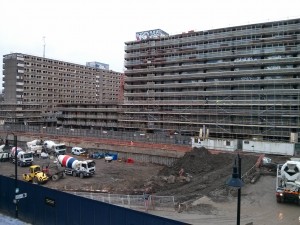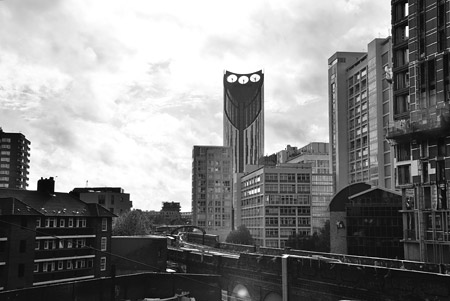LONDON SOUTH BANK UNIVERSITY in partnership with Philcox Gray, Wainwright & Cummins, Anthony Gold and Hanne & Co
Drastic cuts to legal aid mean there is an ever increasing demand for free high quality social welfare law advice. So the innovative London South Bank University Legal Advice Clinic (LAC) is a vital new resource for the residents of one of London’s most deprived boroughs. What is innovative about the project is that it’s a drop-in face-to-face service. That’s great for clients who can get the advice they need immediately, and it’s great for students who are plunged straight into the advice process – always under the close supervision of university-employed solicitors or shadowing local solicitors at specialist evening advice sessions. Philcox Gray, the first firm to offer our services at the specialist evening sessions, are proud that our support for the project has been fundamental to its success.
The LAC operates out of dedicated premises on campus and is open during the University term-time. The current term runs 23rd September – 10th December 2014, and the daytime drop in opening times are:
- Tuesdays 10am – 12 noon
- Wednesdays 10am – 12 noon and 3pm – 5pm
- Access to the evening sessions is via initial assessment at the daytime drop-in sessions
Sessions can get busy and the LAC cannot guarantee to see everybody, so you should arrive early to avoid disappointment.
The LAC’s free drop in service provides basic information on any legal topic and generalist advice on social welfare law matters (except immigration). Clients are signposted and referred to local advice agencies and legal services. In appropriate cases clients are referred for specialist legal advice on family, housing and employment matters at specialist evening sessions. These specialist sessions are staffed by local solicitors who are shadowed by law student volunteers.
The Clinic has had impressive results for clients (over 1200 since it opened in September 2011) and is an inspirational learning experience. One law student described her involvement with enthusiasm:
“No other legal experience I have done has given me this level of responsibility and client contact. Working at the clinic has really boosted my confidence.”
Alan Russell Senior Lecturer, Solicitor and Director of the Legal Advice Clinic asks if such projects can plug the gap left by the attack on access to justice in his article at http://l2b.thelawyer.com/home/opinion/cut-the-gap/3003937.article
The answer? Well – such services can help, and Philcox Gray, along with other local solicitors, are committed to the project’s future.
Clients can contact the LAC at:
London South Bank University
Legal Advice Clinic
Caxton House, 13-16 Borough Road
Southwark SE1 0AA
T : 020 7815 5450
W:www.lsbu.ac.uk/legaladviceclinic
(Please note the LAC does not give advice by phone or email)

